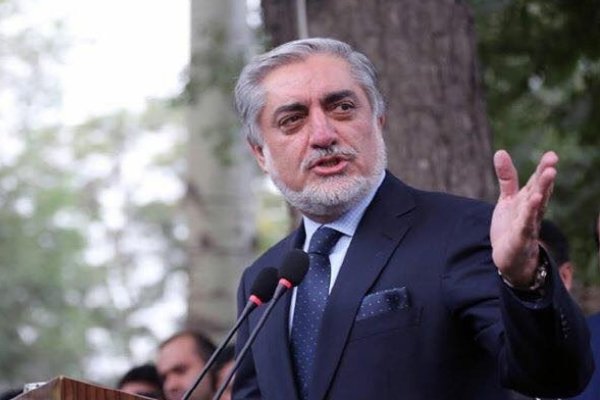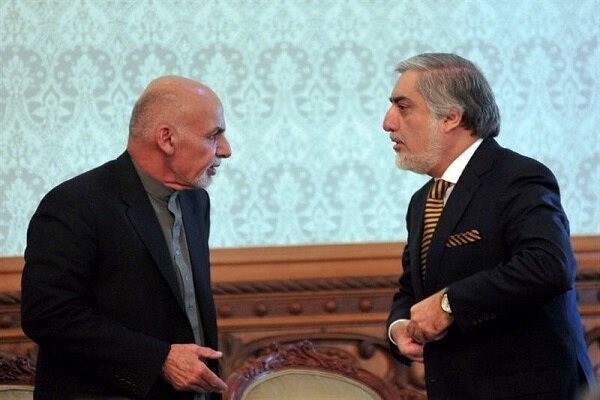After a months-long stalemate and many ups and downs, the Afghan government's ‘political train’ has, at long last, come back on track after Afghan President Ashraf Ghani and his rival Abdullah Abdullah signed a political agreement to start a coalition government in Kabul.
A statement issued by Afghanistan’s Presidential Palace ‘Arg’ said that under the political agreement, Abdullah Abdullah is positioned as the second person in the country for managing issues related to national reconciliation.
This announcement, of course, came as no surprise to Abdullah Abdullah, since Afghanistan’s constitution reserves the second place in the country for the first vice president.
Anyhow, the agreement between Abdullah Abdullah and Ashraf Ghani seems to have, at least to this day, put an end to months of disputes and crisis over the formation of a government in Afghanistan.
From disputes to crisis
The rivalry between Abdullah Abdullah and Ashraf Ghani was not limited only to this round of the presidential election. The same power dispute between the two rivals over the results of the previous election in 2014 eventually led to the formation of the National Unity Government.
However, the results of Afghanistan's latest presidential elections, which was held in September 2019, were regarded with suspicion from the very start, to the point that the results were announced four months after the election on 18th February due to electoral disputes. The Independent Election Commission (IEC) declared Mohammad Ashraf Ghani as the winner, but Abdullah Abdullah did not accept the election results.
This dispute eventually culminated in two simultaneous presidential swearing-in ceremonies in Kabul, which plunged the presidency of the Afghan Presidential Palace into a state of ambiguity.
Eventually, after months of mediation by Afghanistan's political leaders, in particular Hamid Karzai, Abdul Rab Rasul Sayyaf, and Yunus Qanuni, the two candidates agreed to sign a political agreement.
For now, it seems that the signing of the agreement has been able to greatly prevent the escalation of a political crisis in the country and at the very least, determine the status of the Kabul-based government.
How is power divided in the new Afghan government?
According to Afghan news sources, under the current agreement, Abdullah Abdullah will be in charge of managing all government’s peace initiatives.
Furthermore, Abdullah Abdullah's political team will take over 50 percent share of the cabinet, and Abdul Rashid Dostum, one of Abdullah's most prominent supporters representing the Uzbek ethnic minority in Afghanistan, will be given the rank of marshal – a senior position in the Afghan army.
Under the agreement, Afghanistan’s political leaders and influential figures will form the Supreme Leadership Council in charge of advising Ashraf Ghani as president.
Part of the agreement also addresses reforms in government structure and elections.
Under the agreement, a five-member oversight body, including national-political figures, will be set up to prevent the violation of the terms of the agreement.

Abdullah Abdullah's place in the new Afghan government
It seems that Abdullah Abdullah had more executive power in the previous Afghan government, during which he served as Chief Executive Officer of the Unity Government. In the new government, Abdullah is in charge of leading the peace initiatives, while his political team makes up a 50 percent share of ministries and government cabinets.
It should be noted, however, that leading the council for peace talks is an influential position for Abdullah. In fact, Abdullah is currently at the helm of managing the Afghan government's most important domestic challenge, i.e. the peace talks with the Taliban, and from this perspective, his position on advancing the peace talks between the government and the Taliban is crucial to determining the country’s future developments.
External pressure or internal efforts?
Regarding the signing of Afghanistan’s peace agreement, the efforts of influential politicians and political figures in Afghanistan to reach an agreement and reconciliation between the two political rivals are of notable significance.
In other words, the Afghan government's internal agreement is the result of mediation and multilateral negotiations by Afghan politicians with both presidential candidates. This is contrary to some claims and the Western media headlines that have considered the agreement as a result of external pressure, especially from the United States.
In fact, although the US Secretary of State had previously threatened the Kabul government to cut off or reduce some of Washington’s alleged aid to Afghanistan, Ashraf Ghani had said in response that the reduction of aid would have no impact on people's lives or the country’s development and economic sectors. This response was in reaction to the US officials' threats regarding Afghanistan's internal affairs, aimed at showing independent decision-making on domestic issues.
Therefore, Afghanistan's political agreement can be seen as more influenced by an internal resolve and the efforts of Afghan politicians to settle the crisis than by external pressure; The kind of crises which, due to certain security instabilities, are currently threatening the power structure in Afghanistan, and which have prompted Afghan politicians to move toward an agreement and away from non-constructive competition.
On the other hand, the recent agreement in Afghanistan will strengthen the Kabul government's stance on negotiations with the Taliban and provide a clearer vision for peace talks.
Written by Reza Amouei
MNA/4928016

























Your Comment